Filter by
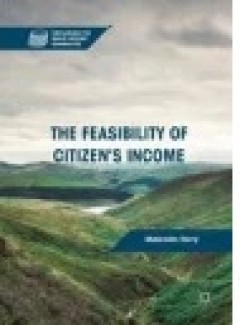
The Feasibility of Citizen's Income
This book is the first full-length treatment of the desirability and feasibility of implementing a citizen’s income (also known as a basic income). It tests for two different kinds of financial feasibility as well as for psychological, behavioral, administrative, and political viability, and then assesses how a citizen’s income might find its way through the policy process from proposal to …
- Edition
- -
- ISBN/ISSN
- 978-1-137-53078-3
- Collation
- XXIX, 286
- Series Title
- Exploring the Basic Income Guarantee
- Call Number
- -

The European Union in Crisis
This volume is a comprehensive and rigorous exploration of intertwined issues surrounding the EU's democracy and legitimacy, written in the turbulent context of the financial crisis. The chapters are woven together under four interconnected thematic sections that examine: rapidly growing national euroscepticism; the Economic Monetary Union and its legitimacy; the future of EU integration; and d…
- Edition
- -
- ISBN/ISSN
- 978-3-319-08774-0
- Collation
- XXI, 257
- Series Title
- -
- Call Number
- -
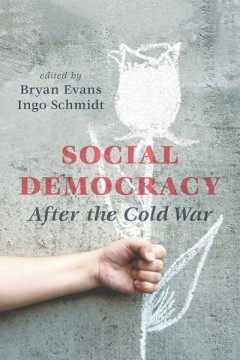
Social Democracy After the Cold War
Offering a comparative look at social democratic experience since the Cold War, the volume examines countries where social democracy has long been an influential political force—Sweden, Germany, Britain, and Australia—while also considering the history of Canada’s NDP and the emergence of New Left parties in Germany and the province of Québec. The case studies point to a social democracy…
- Edition
- -
- ISBN/ISSN
- 9781926836874.01
- Collation
- -
- Series Title
- -
- Call Number
- 340 pages

A Sales Tax for Alberta Why and How
Drawing on policy analysis, recent history, personal experiences, and conversations with Albertans, former politicians, and senior public servants, contributors build a decisive case for why a sales tax is a more efficient tax than corporate or personal income taxes. They examine energy revenues, household incomes, and political support as well as opportunities for improving democracy and reduc…
- Edition
- -
- ISBN/ISSN
- 9781771992978.01
- Collation
- -
- Series Title
- -
- Call Number
- 6 x 9, 240 pages
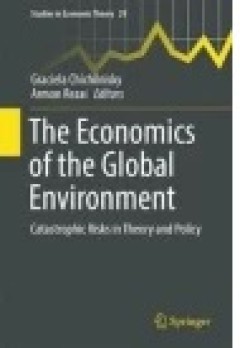
The Economics of the Global Environment
This is the first book combining research on the Global Environment, Catastrophic Risks and Economic Theory and Policy. Modern economic theory originated in the middle of the twentieth century when industrial expansion coupled with population growth led to a voracious use of natural resources and global environmental concerns. It is uncontested that, for the first time in recorded history, huma…
- Edition
- -
- ISBN/ISSN
- 978-3-319-31943-8
- Collation
- VII, 649
- Series Title
- Studies in Economic Theory
- Call Number
- -
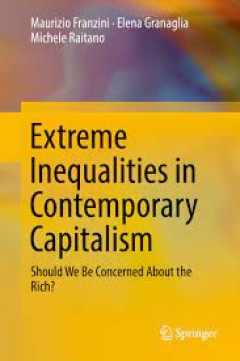
Extreme Inequalities in Contemporary Capitalism Should We Be Concerned About…
This book explores the mechanisms by which top incomes are achieved through work in today’s advanced economies and asks to what extent current extreme inequalities are compatible with widely held values of social justice. Reflecting on the heterogeneity of the working rich, the authors argue that very high earnings often result not from heightened competition induced by globalization but rath…
- Edition
- -
- ISBN/ISSN
- 978-3-319-28811-6
- Collation
- 13 b/w illustrations
- Series Title
- -
- Call Number
- -
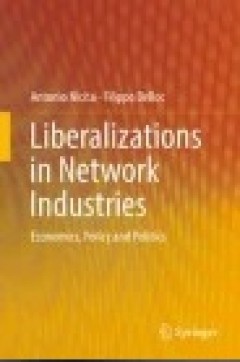
Liberalizations in Network Industries: Economics, Policy and Politics
This book explores the wave of liberalization reforms experienced by OECD network industries. Focusing on the telecommunications sector, the authors analyze the latest data available on liberalization and privatization, and following a political economics approach, they integrate standard economic analysis with the most recent studies of the political determinants of market-oriented policies. T…
- Edition
- -
- ISBN/ISSN
- 978-3-319-43717-0
- Collation
- -
- Series Title
- -
- Call Number
- -
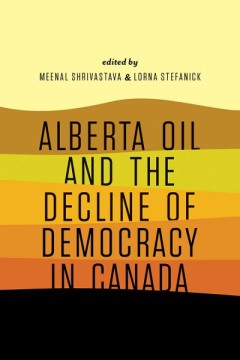
Alberta Oil and the Decline of Democracy in Canada
In probing the impact of Alberta’s powerful oil lobby on the health of democracy in the province, contributors to the volume engage with an ongoing discussion of the erosion of political liberalism in the West. In addition to examining energy policy and issues of government accountability in Alberta, they explore the ramifications of oil dependence in areas such as Aboriginal rights, environm…
- Edition
- -
- ISBN/ISSN
- 9781771990295.01
- Collation
- -
- Series Title
- -
- Call Number
- 440 pages

Experimental Economics Volume II: Economic Applications
How do applications affect behavior? Experimental Economics Volume II seeks to answer these questions by examining the auction mechanism, imperfect competition and incentives to understand financial crises, political preferences and elections, and more.
- Edition
- -
- ISBN/ISSN
- 978-1-137-53816-1
- Collation
- XVIII, 220
- Series Title
- -
- Call Number
- -
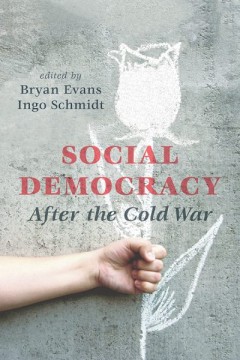
Social Democracy After the Cold War
Offering a comparative look at social democratic experience since the Cold War, the volume examines countries where social democracy has long been an influential political force—Sweden, Germany, Britain, and Australia—while also considering the history of Canada’s NDP and the emergence of New Left parties in Germany and the province of Québec. The case studies point to a social democracy…
- Edition
- -
- ISBN/ISSN
- 978-1-926836-87-4
- Collation
- -
- Series Title
- -
- Call Number
- 340 pages
 Computer Science, Information & General Works
Computer Science, Information & General Works  Philosophy & Psychology
Philosophy & Psychology  Religion
Religion  Social Sciences
Social Sciences  Language
Language  Pure Science
Pure Science  Applied Sciences
Applied Sciences  Art & Recreation
Art & Recreation  Literature
Literature  History & Geography
History & Geography